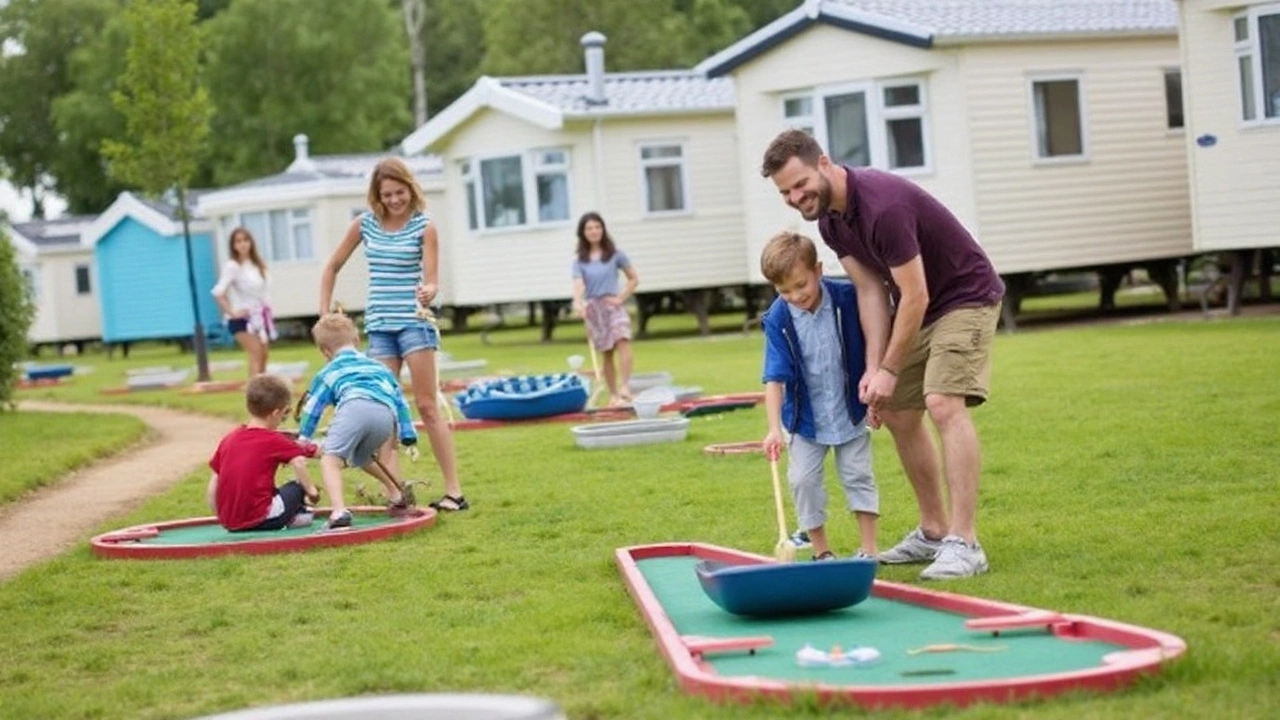
A £250m bet on UK staycations
Britain’s biggest holiday park operator just got a major cash boost. Parkdean Resorts has lined up a £250 million funding package from US investment firm Centerbridge Partners, a move that caps months of fundraising and signals fresh expansion plans despite a choppy consumer climate.
The company, which runs more than 60 parks across England, Scotland and Wales, kicked off a capital raise in May 2025 aimed at growth. This new Centerbridge deal looks like the headline piece of that effort. The two sides haven’t disclosed the split between equity and debt, but the size says a lot: investors still see long-term demand for UK breaks, even with budgets under pressure.
Parkdean has the scale to match the ambition. Industry data shows the group posted £507 million of turnover in the year to 31 December 2023, ranking it 29th by revenue in the hospitality and leisure database. That’s a big base to build from—and a big operation to keep modern.
So where does £250 million go? Expect a mix of everyday heavy lifting and headline upgrades. Holiday parks win repeat business when the basics are better than people remember: warmer lodges, smarter kitchens, faster Wi‑Fi, cleaner pools, better dining, and more things for kids to do when the weather turns. Capital like this lets a group refurbish faster, add lodges where demand outstrips supply, and sharpen its pricing with new inventory.
The funding also buys strategic freedom. Parkdean can move quicker on bolt-on deals if smaller operators come up for sale, especially those with good locations but tired assets. It can push into newer formats—more premium cabins, pet-friendly units, or short-stay products that match shifting travel habits. And it can double down on tech, from app-based check-in to dynamic pricing that smooths demand between peak weekends.
There’s a resilience story here too. Staycations spiked during the pandemic, then cooled as flights reopened. Since then the market has settled into a more normal rhythm—weekend bursts, school-holiday crunch, and a more value-focused customer. Families still want a simple break that doesn’t require airports or currency swings. But they’re choosier, and they compare fast. Investment gives Parkdean more ways to win those side-by-side searches.
Costs are the other side of the ledger. Energy bills, wages, and insurance all stepped higher over the last two years, squeezing margins across leisure. Big operators can hedge energy, streamline maintenance at scale, and spread marketing over dozens of parks. Newer, more efficient units also cut running costs. Fresh capital helps accelerate that capex cycle rather than drip-feeding it.
Centerbridge’s interest fits the playbook. Global investors have been circling UK leisure assets for years because they offer recurring revenue—think annual pitch fees and booked weeks—without the full risk of city-centre hotels. Holiday parks also sit on valuable land, often on the coast or near national parks, with the option to add units if planning allows. For a fund, that’s a mix of cash yield today and upside tomorrow.
The structure matters, even if the detail is under wraps. If the package leans toward equity, it reduces leverage and gives Parkdean more headroom through a cycle. If it skews to private credit, pricing will reflect today’s rate environment but could refinance cheaper if base rates drift lower. Either way, a firm this size doesn’t raise a quarter of a billion unless it has a clear to-do list.
Rivals are watching. The UK holiday park market has consolidated, with bigger players upgrading sites and adding capacity. It’s a scale game now: better booking platforms, national brand reach, and the money to keep parks fresh. Investment like this will likely trigger a response—discount pushes, refurb rollouts, or new attractions—as operators jockey for next summer’s bookings.
What the funding means for staycations and rivals
For customers, the impact should be visible on the ground over the next 12–24 months. Refurbished accommodation, upgraded pools and play areas, stronger entertainment line-ups, and steadier Wi‑Fi are the changes guests notice. Behind the scenes, expect more EV chargers, smarter heating, and energy controls that lower bills and emissions. Those aren’t headline grabbers, but they shape reviews and repeat visits.
Local economies stand to gain. Holiday parks support seasonal and year-round jobs—from grounds teams to hospitality, maintenance to entertainment. Big renovation programmes also bring in contractors and suppliers. The tougher bit is planning: coastal and countryside sites face rules on expansion, environmental protections, and traffic. Having cash is one thing; getting permits at speed is another.
Weather is always the swing factor. A wet July can dent on-park spending and late bookings. That’s why operators keep adding weather-proof draws: covered pools, indoor play, sports domes, and bigger food halls. The more a site can hold up on a rainy week, the less volatile the trading. Capital helps build that resilience.
The consumer picture is mixed but not bleak. Wage growth has picked up, energy bills are easing off their peak, and airfares remain jumpy during school breaks. That supports domestic demand, especially for short breaks that can be booked late. Price sensitivity is real, though, so value-focused offers and flexible stays will be key this autumn and into 2026.
If you’re an investor, the lens is simple: cash conversion and occupancy. Holiday parks make money when units are full and ancillary spend holds up—food and drink, activities, arcades, entertainment passes. New accommodation inventory typically sells through quickly at peak. The bigger question is shoulder months: April, May, September. Better facilities extend those seasons.
Parkdean’s 2023 turnover of £507 million shows how large the platform already is. The job now is to turn that scale into steadier growth—modernise faster than the market, keep prices competitive, and use data to fill gaps. The Centerbridge money gives management the firepower to chase all three.
The company hasn’t spelled out a timetable, but investors will look for early markers by next summer: refurbished unit counts, guest satisfaction scores, and how many new pitches or lodges come online. If acquisitions are on the cards, expect smaller regional deals rather than big-bang mergers, at least at first.
A few near-term priorities stand out:
- Accelerate lodge and caravan upgrades ahead of the 2026 peak season.
- Roll out site-wide Wi‑Fi and app-based services to cut queues and improve reviews.
- Add covered attractions to blunt wet-weather risk and lengthen the season.
- Target selective acquisitions where location is strong but assets are dated.
It’s also worth watching financing conditions. If interest rates ease into 2026, refinancing options improve and private credit gets cheaper. That could unlock a second round of investment or a shift in the capital mix. For now, locking in a committed £250 million package is a clear win in a market where capital still has a cost.
The bigger picture? International money is still backing UK leisure when the assets are proven, the brands are known, and the plan is practical. Parkdean has the footprint and the demand. With Centerbridge’s capital, it now has the runway to push harder and faster than it could from cash flow alone.

Write a comment